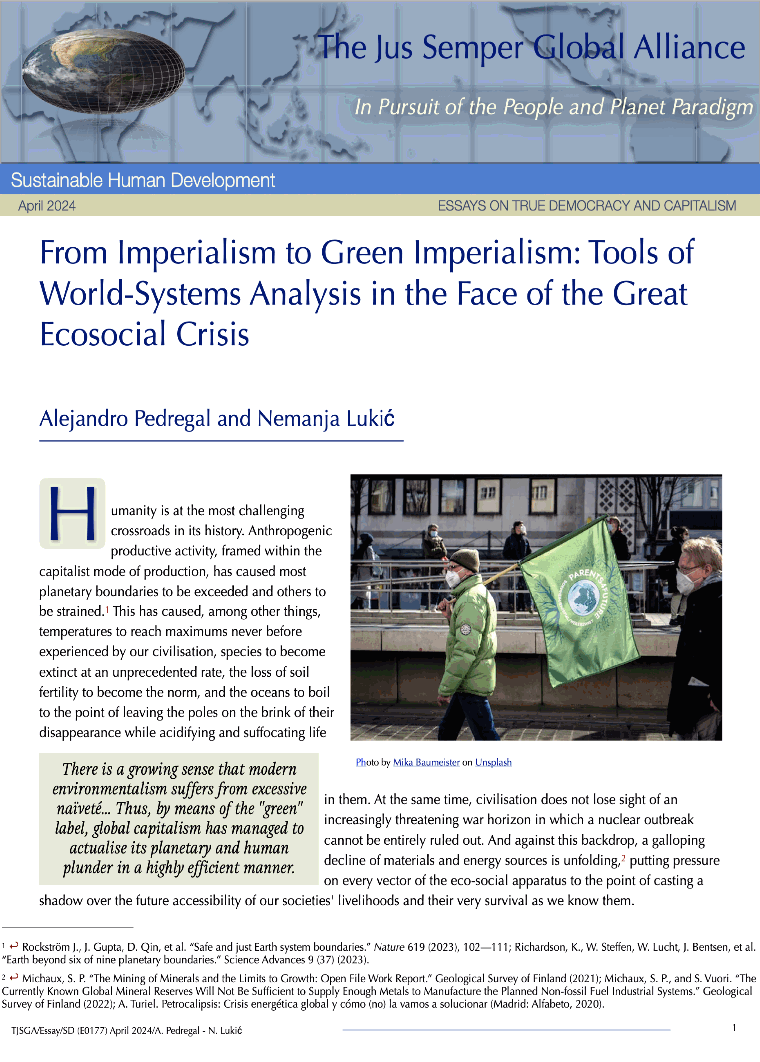Amid this panorama of ecological devastation and military escalation, there is a growing impression, both justified and worrying, that mainstream geopolitical analyses are often too lazy to address the role of the planet's biophysical limits in shaping the global hierarchy between states and their regimes of dependency. On the flip side of this impression, but equally justified and worrying, there is also a growing sense that modern environmentalism suffers from excessive naïveté (and often ambiguity) in understanding the global political-economic dynamics that condition eco-social conflicts. This combination of "oversights" has allowed capitalist elites, among many other things, to adopt many expressions of a supposedly environmentalist character to protect and perpetuate their domination. Thus, by means of the "green" label, global capitalism has managed to actualise its planetary and human plunder in a highly efficient manner. Greenwashing camouflages the interests of exploitation and appropriation of life and natural goods on which capitalism itself is based to adapt them to a terminology that paves the way for its expansion. It is the continuation of business as usual by other means: a new mode of accumulation that tunes business to the fashion of the times of ecological emergency. The "creative destruction" of capitalism sees business everywhere, even in disaster. The dangerousness of this handling of reality, even more so in an era marked by a combination of eco-social crises, makes it essential to identify and unmask those central aspects of the green narratives of global capitalism in order to understand its conjuncture and the projections it allows us to glimpse. This paper aims to contribute to studying the relationship between imperialism and political ecology, the characteristics that identify the historical development of ecological imperialism and the eco-social implications of its cosmetic adaptation in a context of growing threat and biophysical concern. In order to do so, it is essential, first of all, to offer an updated, if succinct, definition of the notion of imperialism. For a full read of this essay, click here or on the picture to download the pdf file.
|

- © The Jus Semper Global Alliance
| Home |  | Resources |  | Economic Data |  | From Imperialism to Green Imperialism |


